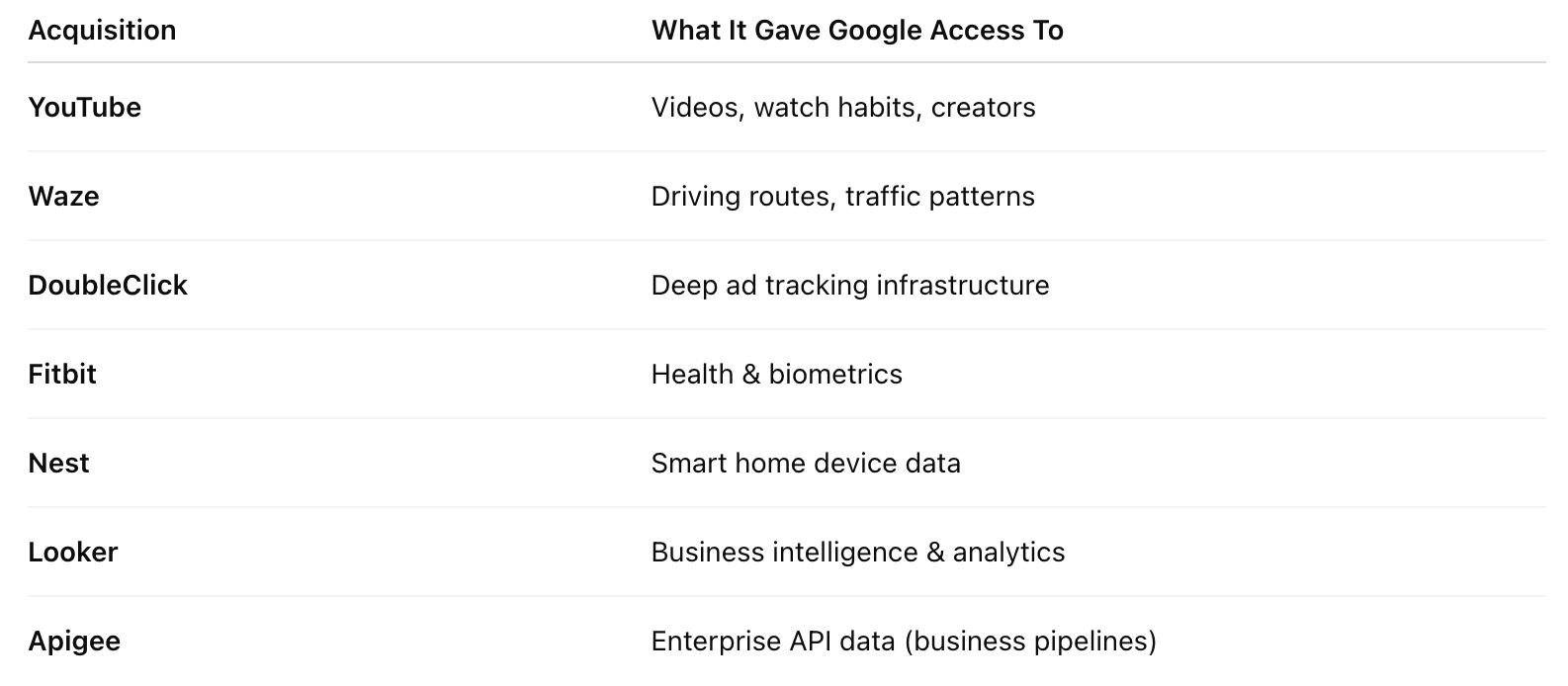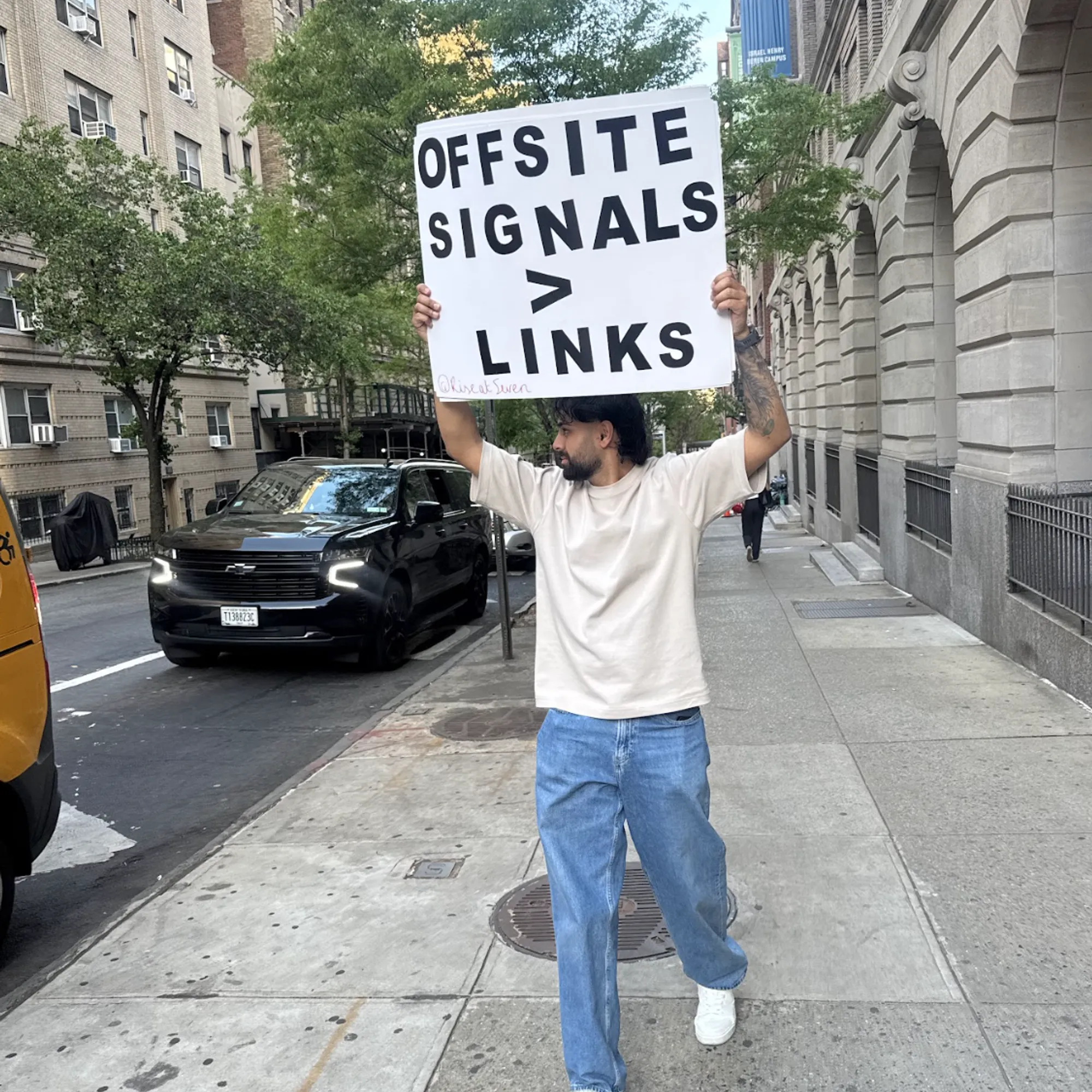Everything Google Knows About You In AI Mode
Think Google just knows what you search? That’s cute.
In reality, Google has evolved from a humble search engine into one of the most powerful data-harvesting machines on the planet. Thanks to a web of products, services, and billion-dollar acquisitions, it knows way more about you than you probably realise.
Let’s break down what data Google owns about you, how they’re collecting it - and why you should probably care.
🧠 1. Your Digital Brain: Search, Web, Ads
Google Search logs every query, click, and page dwell time.
Chrome tracks your browsing, autofills, saved passwords, and even what you copy/paste.
Google Ads follows you across the web using cookies, pixels, and ad IDs.
Google Analytics gives them visibility into any site you visit that uses GA (which is most of the internet).
YouTube (yes, they own it): watches, likes, comments, subscriptions, time spent, etc.
You are the product, and your digital habits are the commodity.
📱 2. Your Devices: Phone, Voice, Apps
Android phones give Google access to app usage, location, call metadata, and more.
Pixel phones take it a step further with phone behaviour, camera use, and even call screening insights.
Google Assistant captures voice commands and smart home interactions.
They’re not just watching you; they’re listening too.
📍 3. Your Physical Location & Movement
Google Maps tracks your daily commute, holidays, restaurant visits—you name it.
Location Timeline literally draws a map of your life.
Even if you’re not using Maps, your Android phone pings GPS constantly—unless you turn it off (good luck with that).
In short, Google knows where you are, where you’ve been, and where you're likely to go next.
📧 4. Your Communication & Content
Gmail scans your emails (yep, still happening in various forms).
Google Calendar sees your meetings, events, reminders, and flights.
Docs, Sheets, Slides, Drive—all content is accessible, indexable, and searchable (by them, not just you).
Basically, if you work in the Google ecosystem, it owns a shadow copy of your life admin.
❤️ 5. Your Health & Body (Yes, Really)
Remember when Google bought Fitbit in 2021 for $2.1B? That unlocked a new level of personal data:
Physical activity, steps, heart rate
Sleep quality, stress levels
Menstrual tracking
Weight, hydration, and nutrition data
They claim this is “kept separate from advertising.” But in the data world, “separate” doesn’t always mean “off-limits.”
🛍️ 6. Your Shopping & Payment Habits
Google Pay stores payment methods, transaction history, loyalty cards, and more.
Google Shopping tracks your intent, product searches, and click behaviour.
Google Store (for Pixel, Nest, etc.) gives them direct purchase data.
So yes—they know what you’ve bought, what you almost bought, and what’s sitting in your wishlist.
🏡 7. Your Home Life
Nest (owned by Google): smart thermostats, doorbells, cameras, motion sensors
They know when you're home, what time you go to bed, when the heating kicks in, and when you open the front door.
Your house may be smart—but it’s also wide open to Google.
🧬 8. Major Acquisitions = Major Data Access
Here are just a few key acquisitions that widened their lens on you:

These aren’t just investments—they’re data pipelines.
🧾 Want to See What They Know About You?
Here’s where to look:
myactivity.google.com – Your entire digital footprint
takeout.google.com – Download everything Google has on you
adssettings.google.com – Your personalized ad profile
Warning: you might need a strong coffee (or a stiff drink) before diving in.
🧨 Final Thought: You’re Not Paranoid—You’re Plugged In
Google isn’t just a search engine. It’s a data ecosystem. A recommendation engine. A health tracker. A payment processor. A surveillance system (if you’re feeling dramatic—but not entirely wrong).
And if you use Android, YouTube, Gmail, Chrome, Maps, Nest, and now Fitbit…? You’ve already told them nearly everything.
The question isn’t what they know.
It’s what they’re doing with it.
Want help navigating the future of digital privacy, search visibility, or brand positioning in an AI-first world? Let’s talk.

CEO & Founder of Rise at Seven, and my job is to be out in the market and see which way the wind is blowing in the next 1, 2, 5 or 10 years time and bring that home to my team and clients. I lead the vision of the agency across the UK & US.
















